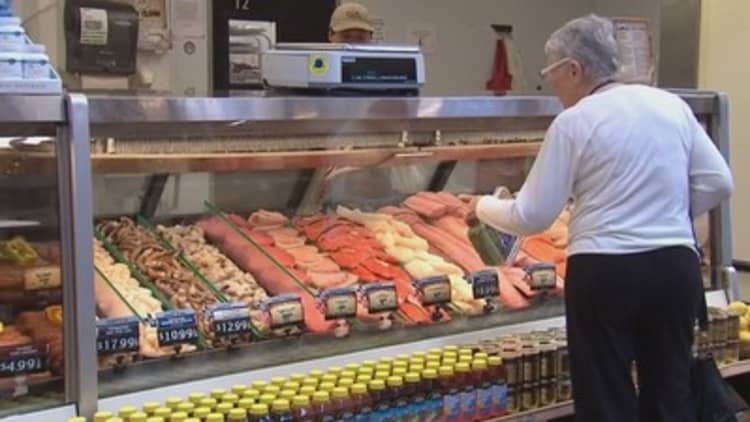
Having spent more than 20 years litigating food-borne illness cases, Bill Marler has a list of foods that he won't touch.
The food poisoning expert is currently part of the ongoing litigation against Chipotle Mexican Grill following its E.coli and norovirus outbreaks and has won more than $600 million for clients since 1993.
Marler revealed in an article he posted in the Food Poisoning Journal on Saturday six foods he has cut from his diet.
1. Raw sprouts
Sprouts—uncooked and lightly cooked—have been linked to more than 30 bacterial outbreaks since the mid '90s, according to Marler. In 2014, bean sprouts sent 19 people to the hospital with salmonella poisoning.
"There have been too many outbreaks to not pay attention to the risk of sprout contamination," Marler said. "Those are products that I just don't eat at all."
2. Prewashed or precut fruits and vegetables
"I avoid these like the plague," Marler said. The food poisoning expert buys unwashed, uncut produce instead, and eats it within a few days to reduce the risk for listeria, which can grow at refrigerator temperatures.
"We've gotten so used to the convenience of mass-produced food—bagged salad and boxed salads and precut this and precut that," Marler says. "Convenience is great but sometimes I think it isn't worth the risk."
3. Rare meat
Undercooked meat can carry E.coli, salmonella and other bacterial illnesses and needs to be cooked to 160 degrees, says Marler. That's why the food poisoning expert orders his burgers well-done.
"The reason ground products are more problematic and need to be cooked more thoroughly is that any bacteria that's on the surface of the meat can be ground inside of it," Marler said.
4. Unpasteurized milk and juices
In 1996, Marler represented several children who developed hemolytic uremic syndrome (HUS), a complication caused by E.coli infections that can lead to kidney failure, from unpasteurized Odwalla apple juice.
The company was found criminally liable in 1998 and paid a $1.5 million fine as well as a reported $12 million to victims in 2000.
"There's no benefit big enough to take away the risk of drinking products that can be made safe by pasteurization," Marler said.
5. Raw oysters
"Oysters are filter feeders, so they pick up everything that's in the water," he explains. "If there's bacteria in the water it'll get into their system, and if you eat it you could have trouble. I've seen a lot more of that over the last five years than I saw in the last 20 years. It's simply not worth the risk."
Marler notes that warming temperatures in the ocean can produce more microbial growth and could be the reason for the increase in foodborne illnesses from raw shellfish.
6. Raw eggs
While the risk for salmonella poisoning from eggs has decreased in the last 20 years, Marler still eats his eggs well-cooked. In 2010, there were roughly 2,000 reported cases of salmonella contamination in eggs.







